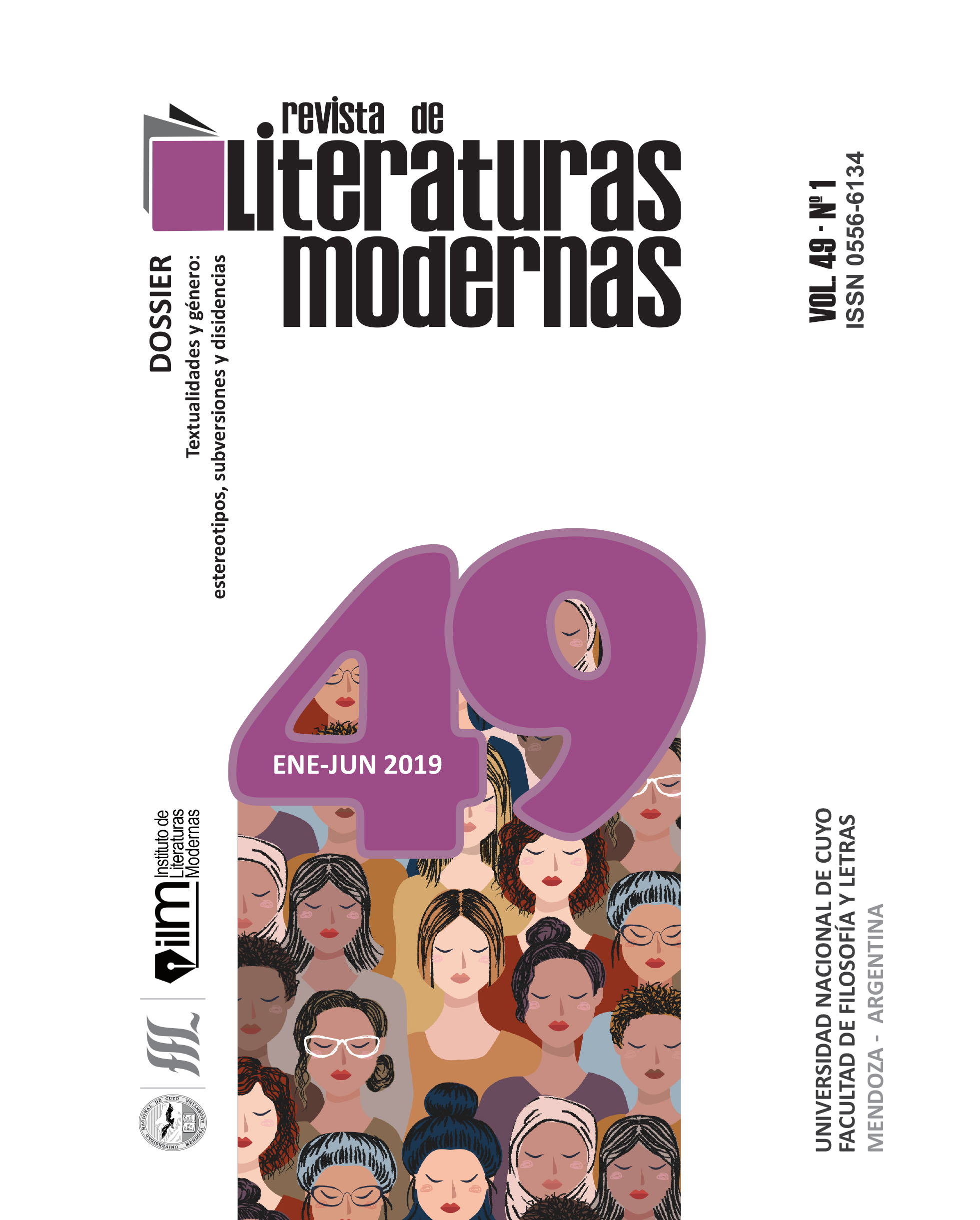Writing against "the Oppressor’s Language": The Challenges of Two Feminist Writers from the Global South
Keywords:
Experiences, Lesbian/Feminist Writing, Lesbian/Feminist Genealogies, Val Flores, Gilda LuongoAbstract
In this interpretative exercise we engage with selected texts by two contemporary feminist thinkers –Gilda Luongo (Chile) and val flores (Argentina). We seek after the traces of their conceptualization regarding the ways in which women and lesbians inscribe their/our narratives in the "oppressor’s language" (following Adrienne Rich, Dorothy Smith and Audre Lorde). We look into their challenges and proposals in a double search. On the one hand, we inquire into their negotiations of the tension between feminist experience and language, which manifests itself in a rebellious writing, grounded in corporeality and unsettled by their historical and spatial locations. On the other, we set to unveil the genealogical role of feminist/lesbian intertextuality, which connects the selected writings with the works of feminists from other times and latitudes, thus laying the grounds of a shared "room of one’s own" in language.
Downloads
References
CIRIZA, ALEJANDRA. 2008. "Genealogías feministas y memoria: a propósito de la cuestión de la ciudadanía de mujeres". Ciriza, Alejandra (coord.). Intervenciones sobre ciudadanía de mujeres, política y memoria. Perspectivas subalternas. Buenos Aires: Feminaria Editora.
DE LAURETIS, TERESA. 2014. Cuando las lesbianas no éramos mujeres. Córdoba: Bocavulvaria ediciones [2001].
FLORES, VAL. 2010. "Escribir contra sí misma: una micro-tecnología de subjetivación política". Espinosa Miñoso, Yuderkys (coord.). Aproximaciones críticas a las prácticas teórico-políticas del feminismo latinoamericano. Buenos Aires: En la Frontera.
KRISTEVA, JULIA. 1967. "Word, Dialogue and Novel". Toril Moi, Toril ( ed.) The Kristeva Reader. Oxford: Blackwell. Páginas 34-61. [1989]
LORDE, AUDRE. 1984. La hermana, la extranjera. En línea: https://glefas.org/download/biblioteca/feminismo-antirracismo/Audre-Lorde.-La-hermana-la-extranjera.pdf
LUONGO, GILDA. 2015. "Escritura y mujeres. Una revuelta estridente/silenciosa". En línea: http://www.bibliotecafragmentada.org/wp-content/uploads/2014/02/Escritura-y mujeres-Luongo-30-01-14.pdf [21/1/2018]
LUONGO, GILDA.. 2017. "Desplazamientos: escrituras/diferencia sexual/memoria/política". Inédito.
MARINKOVICH, JUANA. 1998-1999. "El análisis del discurso y la intertextualidad". Boletín de Filología, Vol. 37, nº 2, 729-742.
MARKS, ELAINE. 1979. "Lesbian Intertextuality". Stambolian y Marks (eds.). Homosexualities and French Literature. Ithaca: Cornell University Press.
RICH, ADRIENNE .1972. "When We Dead Awaken: Writing as Re-Vision". College English, Vol. 34, nº 1, 18-30.
RICH, ADRIENNE.1984. "Sangre, pan y poesía: La posición de quien es poeta". Sangre, pan y poesía. Barcelona: Editorial Icaria.
RICH, ADRIENNE. 2002. Poemas, 1963-2000. Barcelona: Editorial Renacimiento [Trad. Soledad Sanchez Gomez].
SMITH, DOROTHY. 1986. "El uso del lenguaje del opresor". El mundo silenciado de las mujeres. Santiago de Chile: Centro de Investigación y Desarrollo de la Educación. [Trad. Carmen Varas].
WILLIAMS, RAYMOND. 1980. Marxismo y Literatura. Barcelona: Península.
WITTIG, MONIQUE. 2006. "No se nace mujer". El pensamiento heterosexual y otros ensayos. Barcelona: Egales.






